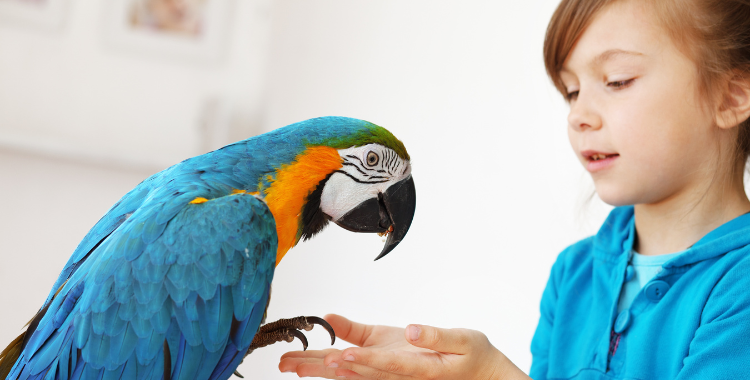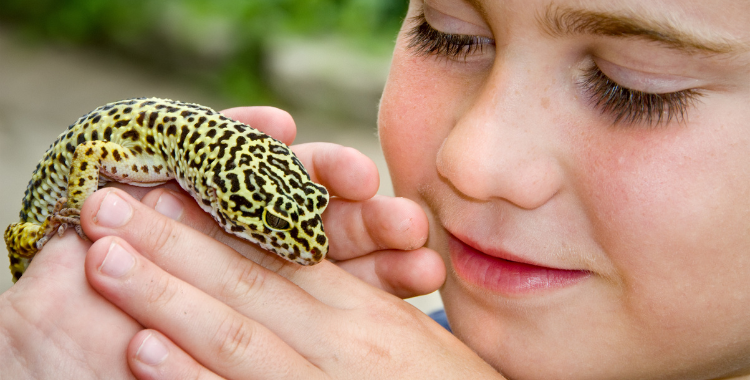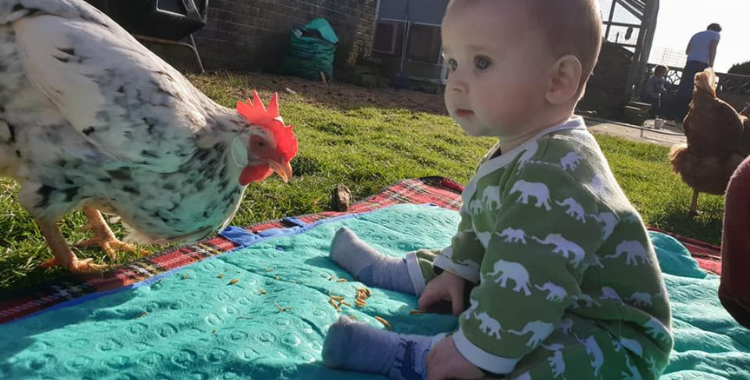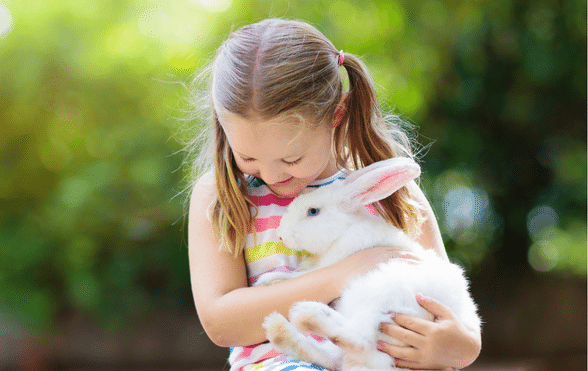From confidence to being a confidant, many believe that pets have a positive effect on children’s mental health. ExoticDirect explores the topic in more detail.
Many families choose to own pets. From traditional cats and dogs to small mammals, reptiles and birds.
Lots of pet owners will agree that pets bring joy to our lives, they’re our motivators, our confidants, our friends and so much more.
The same very much applies to pets and children. Pets help teach our children valuable life lessons. They help support children’s mental health. Pets can help increase children’s confidence and so much more.
In this article we explore the purpose of pets in children’s lives.
A constant in times of change
Children go through a multitude of changes in many aspects of their lives. Having a pet can provide reassurance and be a constant throughout these times.
There’s a wide variety of changes children may experience in their young lives such as changing class teacher to changing schools.
Additionally, more emotionally challenging changes such as the birth of an additional sibling or parents separating. All of these changes can affect children in different ways.
A child’s pet may feel like their one constant in a time of change. They can help provide comfort, reassurance and familiarity. Pets also act as a confidant for many children.

Pets are often a constant during times of change.
A confidant who provides emotional support
The bond some children share with their pets extends beyond simply a furry, or scaled friend to stroke, play with or spend time with.
Research shows that children across ages find emotional comfort in their relationships with animals (Mallon 1992; Jegatheesan & Meadan 2006; NIH 2009). They feel at ease talking to their pets about their fears, joys, frustrations, and everyday events and activities (Jegatheesan & Meadan, 2006).
Additionally, pets act as a confidant for many children. Whilst many pets are responsive to our voices and tones, they can’t talk back, nor can they pass judgement. This makes them a great confidant for many children.

Many children see their pet as their confidant.
Confidence
Pets can help with children’s confidence in a multitude of ways but this is especially true for owners of exotic pets.
ManyPets’ Content Marketer, Derri Dunn, shares how owning hens has helped her son’s confidence in social gatherings.
“I’ve had chickens in the garden for about the last eight years. They’re the most undemanding pets – bimbling around, eating scraps and garden pests, as well as making breakfast.
As soon as they were toddling, my children naturally joined in the daily chicken care. Out in the morning to top-up food and water and collect eggs, then saving a few scraps from tea to hand feed them while chasing them back to the coop.
But at my daughter’s second birthday party, I realised that the chickens help my children with a lot more than learning about husbandry and hen-care.
My son, Tali, is a year older than my daughter but can be painfully shy. He finds it hard to strike up conversations and get playing with other children.
At the party, we decided to use the off-cut sandwich crusts to set up a ‘chicken feeding experience’. It started as a bit of a joke but it was actually a real hit with the two to four year olds.
Some were brave, hand feeding, but most were giggling, shrieking and running away, pursued by determined hungry hens.
It was Tali’s chance to shine. He got to be the hero, picking up the hens and showing the other children how to handle, stroke and feed them.
It was great to see him showing off and being confident among his peers. With all the children wanting to know the names of their favourites too (yes, of course they all have names) they were a great conversation starter too.#
Many other exotic pet owners find the same. Less common than cats or dogs, exotic pets are often intriguing for children. When owning exotic pets, your child may follow in Tali’s foot steps and be the brave and knowledgeable child amongst their peers when it comes to exotic pets.

Pictured here at around 6 months old, Tali has grown up around chickens meaning he’s confident handling them and teaching other children about them.
Life lessons
Animals are often used in books, films and TV shows to help educate children about the circle of life, cultures, behaviours relationships and can help teach valuable life lessons.
Finding Nemo is a great example as it subtly teachers children about the circle of life in the opening scenes but also covers friendships, overcoming problems and more.
Another great example is the Secret Life Of Pets which again covers problem solving but also delves into characteristics and different personalities.
Take for example Max and Duke, two of the main characters. Both initially don’t want to share and there’s some rivalry between the two but as the films progress, they learn they can happily share and live in harmony.
This helps teach children lessons about compassion, sharing and living harmoniously.
Throughout the plot of the two films, pets’ characteristics and personalities are explored which is another great lesson for children.
More articles you may find interesting
Did you know pets can also help with children’s learning and development? We explore this in more detail in our article here.
If you’re wondering which exotic pets are most suitable for families, be sure to check out our article in which reptile expert, Pete Hawkins explores the best reptiles for families. Click here to read.
Please note; in this article, ExoticDirect discusses potential small benefits that pets may have on the mental health and wellbeing of children. If you have questions or concerns about your child’s mental health, please speak to a licensed health care provider for advice and support.

